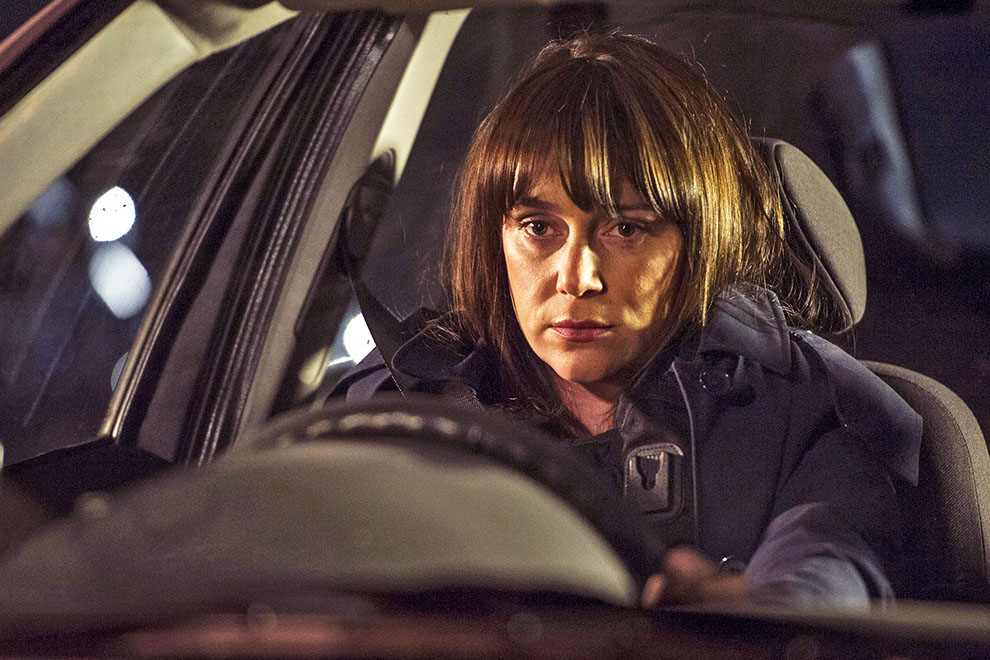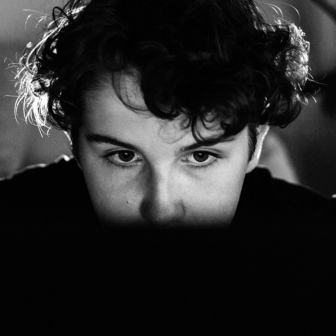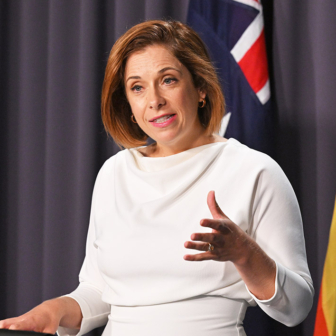For those still given to flopping in front of the TV after a hard day’s work, regardless of “what’s on,” the most likely options will be panel shows, food programs and detective series. Of the three, detective stories might have the longest history as comfort-zone viewing: one of the BBC’s earliest ventures in the genre, dating back to a year before TV arrived in Australia, was Dixon of Dock Green, which ran for twenty years and featured Jack Warner as an elderly uniformed copper who sorted a range of petty crimes at the local station. At the beginning of each episode, police constable Dixon delivered a little homily to camera on the values of good community behaviour. As a humble copper on the beat, he was not strictly a detective, though the storylines usually involved him solving the crime.
Dixon’s descendants in the British tradition include George Gently, Inspector Morse and his successor Lewis, and Jack Frost. Curiously, the women of the comfort zone tend to be in the period genres: Miss Marple and her Australian cousin Miss Fisher are the most obvious prototypes. Since most of these figures have their origin in literary fiction, they also belong to a longer span of cultural history. As the cultural critic Raymond Williams observed, the detective story is a definitive example of middle-class modernism in which murder “is made to consort, very comfortably, with afternoon tea, residential villages, cricket and a classical education.” And, one might add, with feather boas and clip handbags.
But television also shook up the bland formulaic approach, taking the cops out onto the streets in fast-moving action scenes, and showing more of the social worlds in which crime has its origins and impact. The BBC’s Z Cars (1962–78) spawned a second tradition in which social realism, violence and psychological complexity were the core ingredients. For the viewer on the couch, the crime options are now sharply dichotomised. Lewis or Midsomer Murders might serve you well if your after-work indulgences run to tea and cake. If you’re more inclined to pour yourself a whisky, you’ll go for Happy Valley, The Fall or Line of Duty.
The second series of Line of Duty, currently playing on ABC on Friday nights, offers some interesting challenges to the Williams thesis. For one thing, it reflects a new social reality: the middle class is not a safe place to be any more. Widely perceived to be under threat of extinction from the ravages of extreme capitalism, the middle class is also assailed by more particular threats. For professionals of all kinds, there is danger at work. With performance management regimes, redundancy declarations, liabilities and lawsuits, a job can turn on you in so many ways.
Line of Duty focuses on the investigations of an anti-corruption unit within the police force, and as the story progesses, it becomes clear that there is a slippery slope between compromise and corruption. No one, it seems, is immune to compromise, including the hardcore incorruptibles on the team. Superintendent Ted Hastings (Adrian Dunbar) has money troubles and desperately needs the promotion his boss, deputy chief constable Mike Dryden (Mark Bonnar), has promised. So what happens when one of his team produces evidence that puts Dryden under investigation? And is Dryden’s overt support for Hastings a sign that’s he’s trying to pre-empt the scrutiny?
At the centre of the story is DI Lindsay Denton, played by Keeley Hawes as a sullen and rather isolated woman who is difficult for colleagues and viewers alike to assess. Hawes is almost unrecognisable as the actor who played Alex Drake in Ashes to Ashes, a series I found unwatchable for all the kooky posturing and mugging to camera in which she was encouraged to indulge. Here, there’s not a shred of vanity about her performance. Denton is a character who doesn’t do self-esteem. Apart from the job, to which she declares herself stoically dedicated, the components of her life are a failed love affair, a dying parent, a rowdy neighbour and a cat that ends up being rehoused. There’s a poignancy about her, brought out in moments when she’s alone, picking out melodies on the piano. The charmless manner and the sudden attacks of venom give way to moments of raw feeling as her ordeal gets rougher. Hawes sustains the ambiguity with an unfaltering instinct for the emotional truth of the character.
It’s largely due to her fine performance that the series has gained such popular and critical momentum, but good television acting does not occur in a vacuum. The level of dramatic subtlety and concentration is established by the cast as a whole. Many of the actors in Line of Duty are familiar to viewers from other recent series, but here they are doing their best work. Martin Compston (formerly Ewan Brodie in Monarch of the Glen) is a young officer recently recruited to the anti-corruption unit, who has won the unshakable confidence of Hastings, his boss. Compston plays the role with restraint and economy. He’s not the new hero on the block; he’s a good professional learning his own capacities. Adrian Dunbar as Hastings has the problem of being too recognisable. He’s been in Cracker, Inspector Morse, Ashes to Ashes, Silent Witness, A Touch of Frost. It’s got to the point where whenever a British crime series takes you into the police station, you expect to find him there. Line of Duty gives him a more developed role, and Dunbar knows exactly what he’s doing as the character charts his course through a moral labyrinth in which nuances of behaviour are clues by which the viewer is invited to second-guess the next turn.
There has been some controversy over the final episode of series two. Scriptwriter Jed Mercurio seems to have set too many hares running, and they had to be rather summarily rounded up for the denouement. But it’s in the resolution of the crime story that the call of the comfort zone can reassert itself. One of the most widely discussed theories about the popularity of crime fiction is that it caters to some deep human need to have the chaos of the world tidied up and the moral order restored. Mercurio doesn’t buy into that at all.
Line of Duty exhibits some interesting parallels with The Fall. Both mark a departure of the television crime series to a zone where there is ultimately no comfort from the law enforcement process or the courtroom. We are beginning to see detectives fail. Crimes are left unsolved, or cases are erroneously resolved, and the next series is triggered by the compulsion to return and try again. To fail again, to fail better.
Speculating about the ongoing cultural obsession with crime stories is almost as fascinating as the stories themselves. The TV Detective: Voices of Dissent in Contemporary Television, a new book about British television crime by Helen Piper, is an attempt to map the changing and ever-expanding field. Critical studies in this area too often become embroiled in genre theory, but Piper maintains a lucid perspective and keeps the focus on some key questions.
One of these is the imaginative connection between viewer and detective. A move towards “centred biography,” Piper says, followed the success of the Morse series. This involved deepening the psychological profile of the leading detective character by developing a personal life story, typically one in which family relationships are in tension with the demands of the role. Something we can never expect of the detective story is work–life balance; the dynamic is always driven by the all-engulfing demands of the case. Perhaps the viewer on the couch seeking some mental relief from his or her own working world finds this paradoxically gratifying. Someone else’s work can be more exhausting than your own, but also more urgent, frustrating and obsessive.
Some critics have associated the lonely detective with “a crisis of bourgeois individualism.” They often behave badly to those around them, make wrong calls at critical moments and probably drink too much. But, as Piper observes, the dramatic structure must be “designed to support and demonstrate the ‘truth’ of their moral viewpoint.” As we follow their progress, we slide between the frames of empathy, sympathy and antipathy.
Genre-think can have a very deadening effect, not just on criticism, but also on the dramas themselves, because generic seed stock keeps on producing the same kind of crop. Piper is good at explaining the determinants of genre and then digging around them to see where something new has been introduced. She doesn’t have a great deal to say about Line of Duty (the book probably went to press before series two was broadcast) but reading The TV Detective enhances the experience of watching it, and confirms my sense that this is a series running wide of some of the most stable parameters of the detective tradition. •




